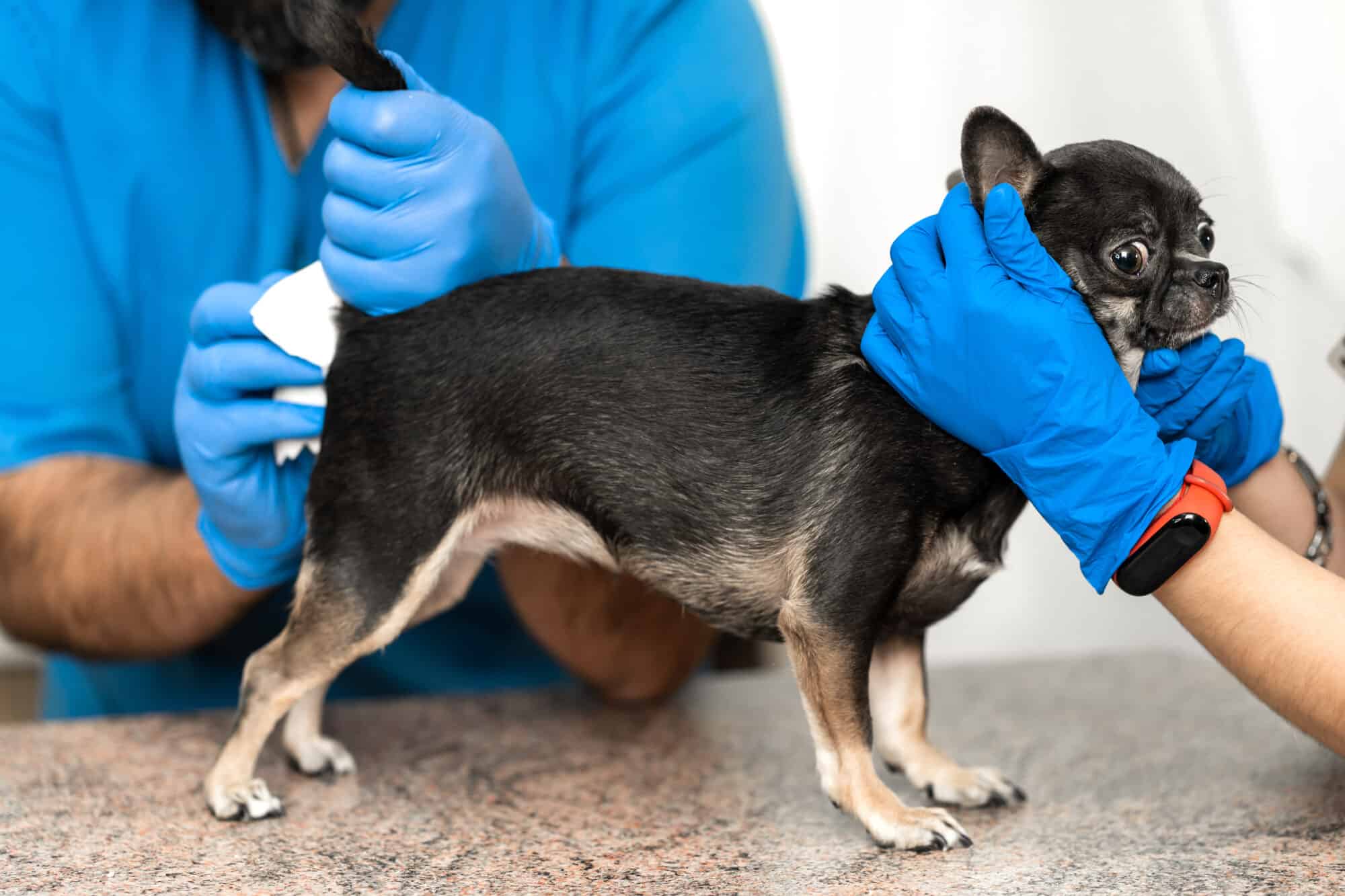Behind the Tail: The Scoop on Anal Gland Expression in Dogs

We love our pets and the joy they bring to our lives. That does not mean that everything is all positive experiences and good smells, however. Anal gland expression in pets is a necessary procedure for many dogs (and benefits their humans, too). Here is the scoop on anal gland expression and how it can help your pets:
The Basics of the Anal Glands
Dogs have two small sacs on both sides of the anus. These sacs, or anal glands, are full of a small amount of fluid with a distinctive odor unique to each dog. Many people describe the odor as “fishy,” and experts believe it is used to mark territory. This is why dog’s sniff each other’s behinds when saying hello. They receive instant information about the other animal just from smelling this odor. In most cases, a very small amount is released. Sometimes a dog can release the liquid (and odor) involuntarily when they are startled. Most dogs will never experience an issue with their anal glands, but some might require veterinary intervention.
Impaction, Infection, Or Full Anal Sacs
Problems occur for dogs when the anal glands become impacted, infected, or overly full of fluid. If you notice any of the following, it is time to schedule an appointment with your veterinarian:
- Scooting: If your dog has been dragging his caboose along the floor (why is it always on the carpet?), he could be trying to quell some discomfort due to an issue with the anal glands.
- Scratching or licking: When a dog is uncomfortable, he might also repeatedly lick or scratch at the area. If this behavior seems to go on more than normal, it might be helpful to schedule a wellness visit.
- Trouble pooping: A blockage in the anal glands could eventually affect your dog’s ability to defecate. You should always alert your veterinarian about significant changes with bowel movements.
- Blood or pus: The presence of blood or pus in the stool or around the recturm could also let you know there might be an anal gland issue that needs attention.
The Source of Anal Gland Problems in Pets
There are a few different factors that can cause problems with the anal glands. These include:
- Obesity
- Skin problems
- Nutrition deficiencies (specifically fiber)
- Gastrointestinal issues
- Allergies
- Genetics (smaller breeds are more likely to develop issues, but large breeds are also susceptible)
If your dog is having issues with anal glands, talk to your veterinarian about diet and lifestyle changes that could potentially help reduce the risk for further issues.
Anal Gland Expression
When everything is working properly with the anal glands, they will express (release) themselves with normal bowel movements. If there are issues with anal glands, the veterinarian can perform an anal gland expression. Without proper treatment, infected, impacted, or full anal glands can lead to further health issues.
The caring and compassionate team at Western Veterinary Center is here to help with all your pet health needs. From routine wellness visits to surgeries, we provide the full-service care you need to keep your pets happy and healthy. Call (805) 957-PETS (7387) to learn more.
